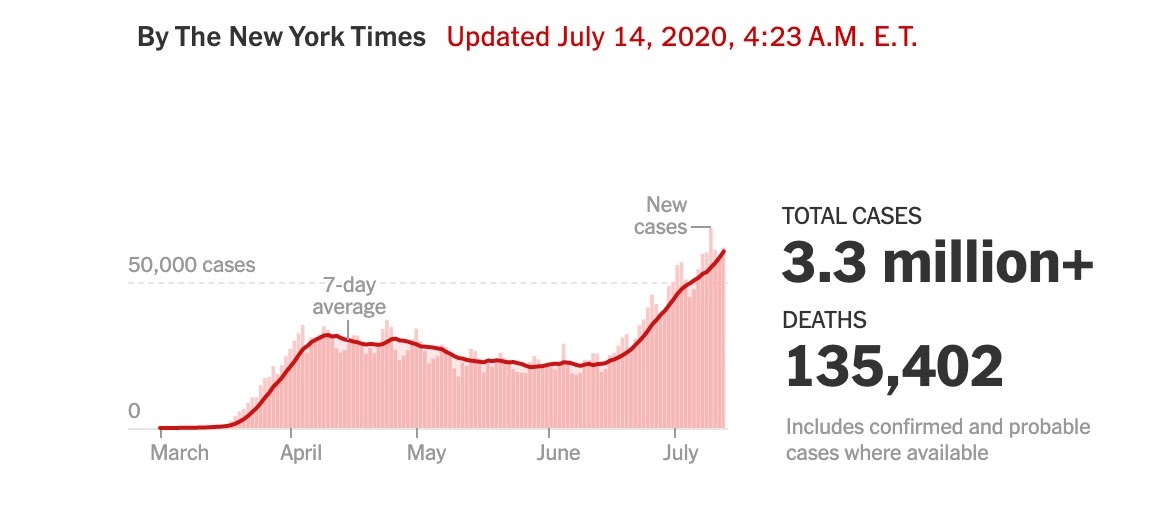The absurdity of trying to sue China over COVID-19
Some U.S. lawmakers are trying to find ways to allow citizens and states to sue China over COVID-19. Perhaps they think scapegoating a country is easier than promoting sensible policies to combat the virus at home.

Senate Judiciary Chairman Lindsey Graham announced last month that his committee would review legislation to amend the 1976 Foreign Sovereign Immunities Act, creating a potential avenue for U.S. citizens to sue China for various compensatory measures over COVID-19. “I cannot think of a more compelling idea than to allow individual Americans, or groups of Americans, to bring lawsuits against a culprit — the Chinese government — for the damage done to their family, to our economy, and to the psyche of our nation,” Graham said.
The senior Republican Senator from South Carolina represents the latest in a long line of U.S. government officials, mostly conservatives, who support adopting a hardline stance and seeking legal recourse against China for the COVID-19 pandemic.
Other lawmakers on the Judiciary Committee, including Senator Dianne Feinstein of California, have disagreed. While condemning Beijing for its actions, she also unequivocally criticized the Trump administration for its own handling of the pandemic.
“I understand the committee’s interest in looking at questions around foreign sovereign immunity, and China’s failures relating to the coronavirus pandemic,” Feinstein, the top Democrat on the committee, said. “But we also need to take a careful look at what our government could and should have been doing. Was it better?”
In many ways, the answer is too obvious. The U.S., despite having weeks to prepare a coronavirus response as the virus moved from Asia to Europe, now leads the world in both confirmed cases (3.3 million) and deaths (135,000). Both numbers are underreported due to limited testing. Both are going up at alarming rates.

Instead of promoting wise policies at home, such as wearing masks, some have sought to scapegoat China as a way of deflecting blame.
In late April, Missouri became the first state to officially sue the Chinese government. The lawsuit, filed by GOP state Attorney General Eric Schmitt, alleges that Chinese officials are “responsible for the enormous death, suffering, and economic losses they inflicted on the world, including Missourians.” Schmitt sought unspecified damages as compensation for the deaths in Missouri and for the economic toll of the virus.
To date, at least six lawsuits have been filed against China in U.S. federal courts. President Donald Trump has endorsed the idea of allowing individuals to sue China, previously mentioning a figure of $10 million per death. This would amount to more than a trillion dollars in compensation.
Arkansas Sen. Tom Cotton and Texas Rep. Dan Crenshaw have also introduced Congressional legislation to enable individual Americans to sue China, a bill modeled after the Justice Against Sponsors of Terrorism Act, which 97 Senators voted to pass in 2016. Incredibly, the number of proposals to punish China according to the law for COVID-19 is on track to surpass the number of counterterrorism proposals after 9/11. As Newsweek reports:
Amid the brewing bipartisan anger and quest to hold Beijing accountable, lawmakers have introduced more than 100 bills and resolutions since February in a bid to hurt or condemn the economic powerhouse as a result of the virus. Since this Congress started in January 2019, there have been more than 350 measures targeting China for a plethora of other issues.
There’s one small problem: It’s just not legally possible.
In 1976, Congress approved a statute known as the Foreign Sovereign Immunities Act (FSIA), which allows a lawsuit against a foreign government in American courts only under exceptional circumstances. Specifically, rare instances where the claim is based on commercial activity deemed sufficiently connected to the U.S. — or, in a more recent exception to the FSIA — litigation against state sponsors of international terror. The notion that the COVID-19 outbreak should be regarded as an act of terrorism is probably too big of a stretch for even the Beltway’s fiercest China hawks.
But legislation put forth by Cotton and Crenshaw seeks to amend the FSIA to allow litigation against China’s “malicious lies and coverup that allowed the coronavirus to spread across the world,” as Rep. Crenshaw put it.
Would that be wise to pursue? No, says Chimene Keitner, a professor of international law at the University of California’s Hastings College of Law in San Francisco. Testifying at the June 23 hearing, Keitner told the committee: “The United States has the most to lose from weakened immunity rules. Private litigation will not force China to negotiate.”
Even assuming one receives a favorable decision from a U.S. court after a drawn-out legal battle, another significant obstacle lies in the enforcement of the verdict: China could simply refuse to pay. In this instance, the matter could be brought before the International Court of Justice, one of the principal judicial bodies of the UN and arbiters of international disputes between states. However, China doesn’t recognize the jurisdiction of the court. And neither does the U.S. Where does that leave us? As Robert Williams, the executive director of the Paul Tsai China Center at Yale Law School, describes it: “The net result you could conceivably wind up with is that Congress creates a new law giving U.S. citizens a right without a remedy.”
Ultimately, many policymakers and analysts agree that focusing efforts on legal retribution is wholly counterproductive to resolving the more pressing crisis at hand. The havoc wrought by this global pandemic requires global cooperation to resolve. Health experts point to the resolution of the 2014 Ebola epidemic as a paradigm to follow, which involved a global coalition. That coalition was led by the U.S. and China.






